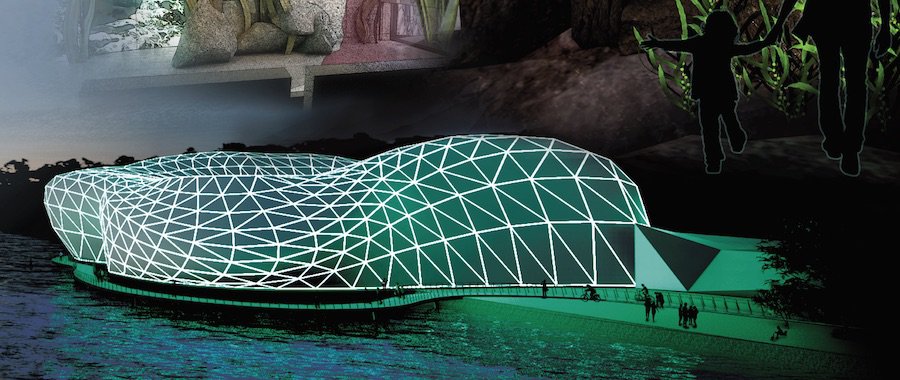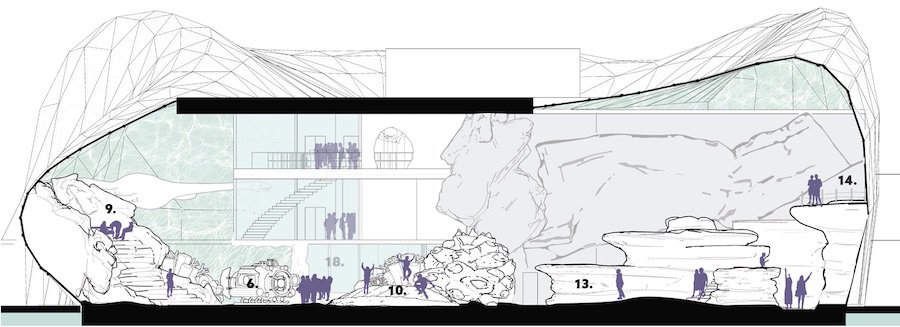9th June 2020 –
Concept rendering of “The AquaLab” exterior structure by Ross Ricupero, Charlene Karl, and Michelle Bootsma
CAVU Designwerks, the media-based attractions specialist, was a sponsor and judge of this year’s Cornell Theme Park Design Competition.
CAVU Designwerks is proud to announce that it was a sponsor of the Cornell Theme Park Design Competition 2020, where it also served on the judging panel. Other sponsors of the event were JRA, Whitewater, Zamperla, and The Theme Park Project.
This annual competition celebrates the talent of upcoming young professionals in the industry, and CAVU has a special connection with the competition with two Cornell alumni on its team: Mark Stepanian, VP of Innovation and Engineering and Nathan Jones, COO.
Showcasing talent
“This year’s Cornell Theme Park competition was incredible. With a record number of submissions and truly global representation, the competition was steep and very well qualified,” said Stepanian.
The company sponsored the Innovation Challenge, which highlights new and cutting-edge interactive technologies. Submissions must use technology that enhances the guest experience. It should also be seamlessly integrated with the attraction in order to fit the creative narrative.
“While several groups succeeded in meeting this innovation goal, it was thrilling to see such a deep understanding of these advanced technologies, the clear and concise walkthrough and the targeted and appropriate application of that technology to drive the story,” added Stepanian, who was part of the judging panel.
“It is that level of engagement, passion, and vision, combined with beautiful renderings, imaginative storytelling, and sharp technical focus that gives me excitement and hope about the future of the themed entertainment industry.”
2020 winners
The winner of the 2020 Cornell Theme Park Design Competition, including the Innovation Challenge, Master Planning Challenge and Development Challenge, was Team 15. The winning team consisted of Ross Ricupero, Charlene Karl, and Michelle Bootsma from the University of Calgary.
The prize-winning entry was The Aqualab concept, which included a custom picture access for all guests made from recycled sea waste. Using RFID, these cards are designed to activate a range of experiences, from low-tech to high-tech. The concept itself does not rely on the access cards but lets guests choose how much they want to use the technology.
“It has been incredible to witness the tremendous growth of the TPEG Design Competition and the impact it has begun to make on the industry with a worldwide audience of participants. As a proud Cornellian the level of submissions continues to impress year over year with new and inventive ways that will undoubtedly carve the path for future contributors to our industry!” said Jones.
CAVU Designwerks also recently launched Bluesky Services, which will allow its engineering team to brainstorm technically on new or existing products and projects.



